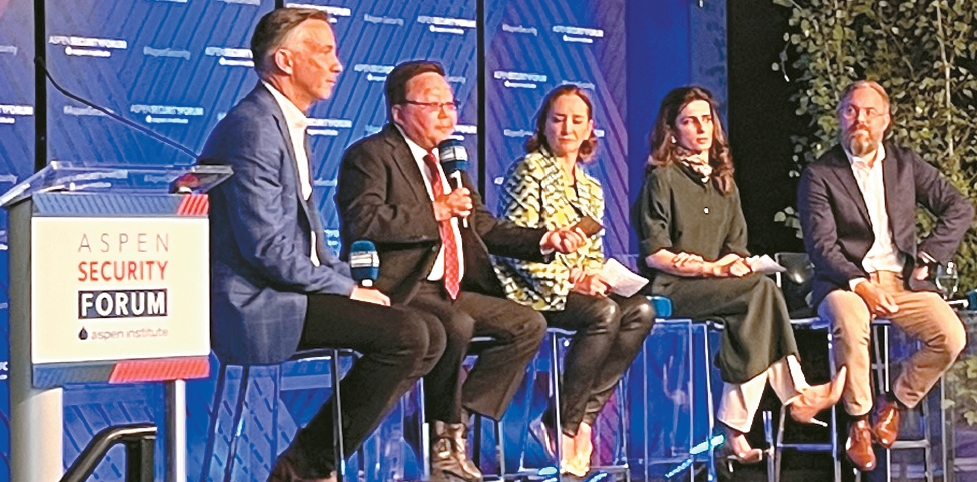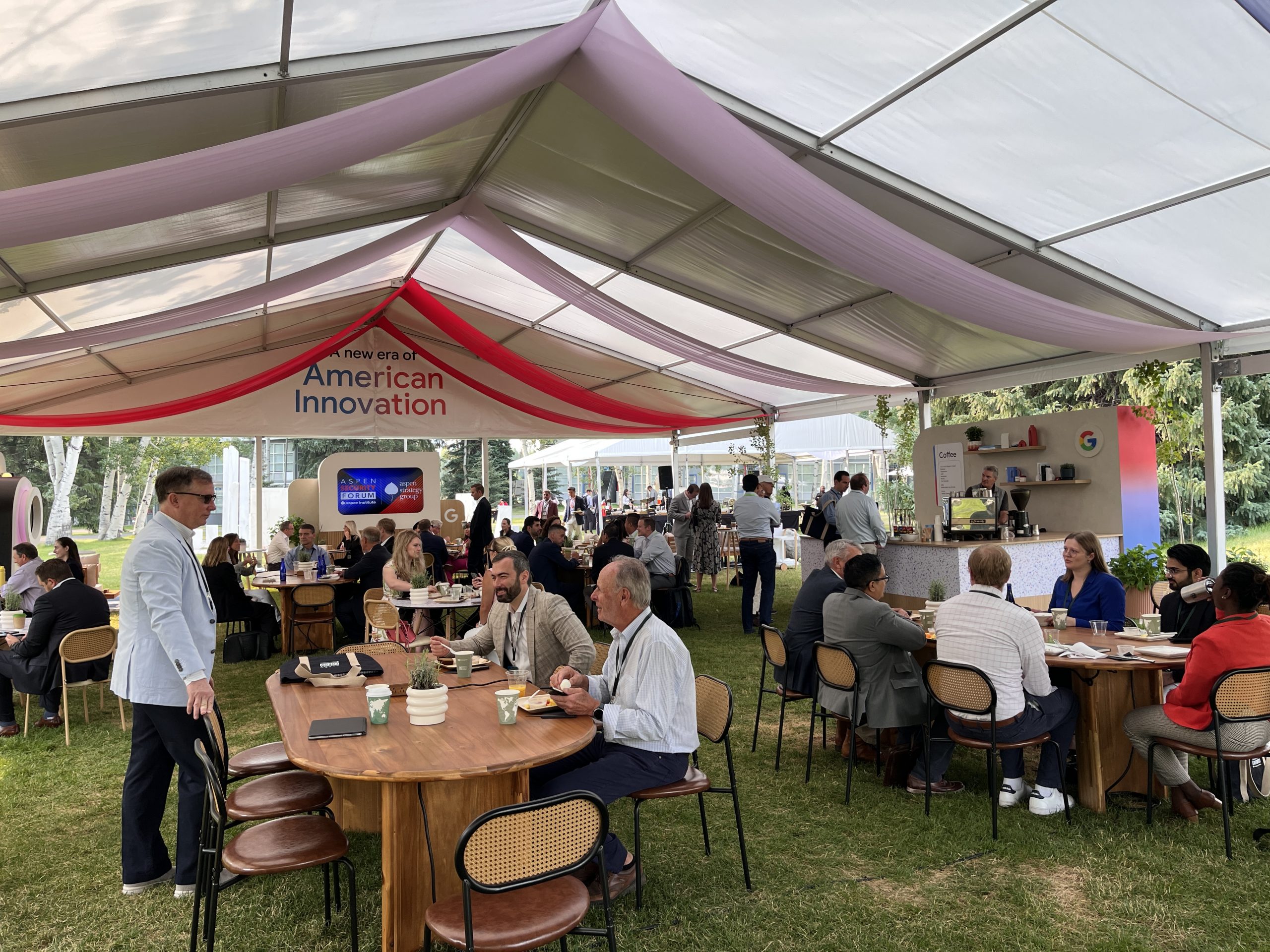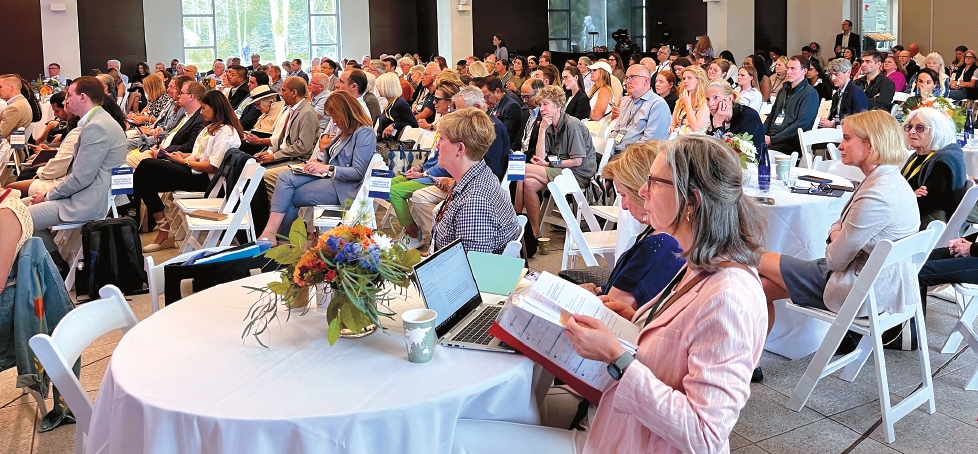The quiet mountain town of Aspen, Colorado—home to just 7,000 residents—has transformed into a global forum for high-level discussions on international security. Around 600 current and former government officials, business leaders, and experts from around the world have gathered here for the annual Aspen Security Forum.

Running from July 15 to 18, the forum takes place against the serene backdrop of the Rocky Mountains. But beneath this calm setting lies a weighty agenda centered on global security issues.
One of the most closely watched topics on July 16, the forum’s second day, was the growing threat of North Korea’s intercontinental ballistic missiles (ICBMs). The issue gained fresh attention following former President Donald Trump’s recent announcement of the “Golden Dome” missile defense initiative, aimed at leveraging space-based systems.
Retired General Tim Ray, former commander of the U.S. Air Force Global Strike Command, stated, “With North Korea’s successful development of ICBMs, they now possess the capability to directly strike the U.S. homeland. The Golden Dome is essential to defend against such threats.”
Admission to the Aspen Security Forum is priced at $4,000 per person, with patron-level tickets for VIPs reaching $12,000. Despite the steep cost and remote location, hundreds make the trip—underscoring the critical role of security in upholding freedom, and the forum’s influence across politics, economics, and diplomacy.
Every July, Aspen bustles with visitors despite being off-season. Hotel rates soar past $500 per night, and even local restaurants are filled with business-casual attendees. The forum is the largest event of its kind in the U.S.

At 7:30 a.m. on July 16, participants were already lining up at the large tent outside the Aspen Meadows Resort, where the forum is held.
Among the speakers this year is former Mongolian President Tsakhiagiin Elbegdorj, who served from 2009 to 2017 and is now a visiting fellow at Stanford University’s Hoover Institution. “Mongolia holds a strategically vital position between Russia and China,” he noted.
At 9 a.m., a session titled “The Future of Space” began, featuring key figures such as Jane Harman, chair of the U.S. National Defense Strategy Commission; retired Lt. Gen. Nina Armagno, former staff director of the U.S. Space Force; retired Gen. Tim Ray; and Robert Lightfoot, Executive Vice President of Lockheed Martin Space.
All emphasized that space technology is crucial not only for daily conveniences like smartphone GPS but also for missile warnings and nuclear deterrence. Maintaining superiority over Russia and China in this domain, they agreed, is essential.
Lt. Gen. Armagno warned that “Russia and China are rapidly deploying strategic space assets, posing direct threats to U.S. satellites.”
Ray, reiterating the urgency of the ICBM threat, stressed that the Golden Dome is also vital to reassure U.S. allies and must be underpinned by strong space capabilities.

Another session tackled “Energy Security in an Era of Shifting Geopolitics.” Dan Brouillette, former U.S. Secretary of Energy under the Trump administration, emphasized the need for the U.S. to develop advanced energy extraction technologies and strengthen its domestic energy capabilities to stay ahead of China.
Harvard Belfer Center Director Meghan O’Sullivan highlighted the importance of allied logistics networks. “Energy security depends on the stability of global supply chains,” she said. “The U.S. must collaborate more closely with allies to secure these networks.”
By lunchtime, attendees took their first real break of the day.
One unique feature of the Aspen Security Forum is its setting in nature. Unlike other major security events, which are often held in Washington, D.C. or New York, the Aspen forum has taken place 1,830 miles away from D.C. for 16 consecutive years.
“Aspen is a magical place—a space for rejuvenation and new ways of thinking,” said Anja Manuel, Executive Director of the Aspen Strategy Group. “By stepping into nature, we open our minds to bold and fresh approaches to global threats.”
The forum resembles a multilateral summit. High-ranking foreign diplomats are well represented. Panelists and speakers included Latvian Foreign Minister Baiba Braže, Pakistan National Assembly Foreign Affairs Chair Hina Rabbani Khar, Hungarian Prime Minister’s Advisor Balázs Orbán, Brazilian Foreign Ministry spokesperson Joel Sampaio, Singapore Foreign Minister Vivian Balakrishnan, and EU Commissioner for Defense and Space Andrius Kubilius.
Minister Balakrishnan commented on the shifting dynamics of global trade amid U.S. protectionism. “The rules-based system governed by the WTO and GATT is giving way to a bilateral approach between nations,” he said.
When asked about rising cross-strait tensions, he responded, “Singapore has maintained good relations with both China and Taiwan for a long time. Despite recent Chinese military drills, I do not believe China will actually proceed with an invasion of Taiwan.”
The forum also draws interest from the defense industry. Representatives from Amazon, Google, Microsoft, Lockheed Martin, Boeing, OpenAI, and McKinsey & Company attended the event.
A defense tech investor from Washington, D.C. said, “The Aspen Forum brings together an impressive cross-section of influential figures. With deep discussions on policies, technologies, and solutions, the forum is well worth the price of admission.”
BY KYEONGJUN KIM [kim.kyeongjun1@koreadaily.com]

![Thefts target Korean churches in LA, exploiting Sunday services A man believed to be the suspect. [Courtesy of Pastor Sam Shin]](https://www.koreadailyus.com/wp-content/uploads/2026/02/0203-thief-100x70.jpg)
![SSA to scrutinize overseas travel of Social Security beneficiarie An illustrative image of Social Security beneficiaries traveling abroad. [ChatGPT-generated image]](https://www.koreadailyus.com/wp-content/uploads/2026/02/0202-social-security-100x70.jpg)
